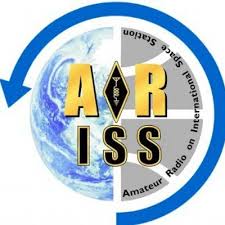WCF SECTION PRESS RELEASE #20-11
RIVER RIDGE HIGH SCHOOL SCHEDULED FOR ARISS CONTACT ON TUESDAY 3/03/20
 According to the Amateur Radio on the International Space Station website (http://www.ariss.org), an International Space Station school contact has been planned with participants at River Ridge High School, New Port Richey, FL. The event is scheduled to begin at approximately 15:17 UTC (10:17 EST) on March 3, 2020. The duration of the contact is approximately 9 minutes and 30 seconds. The contact will be direct between NA1SS and Ralph McCullough WA3YFQ, who also serves as the ARRL Emergency Coordinator for Pasco County. The contact should be audible over the state of Florida and adjacent areas. Interested parties are invited to listen in on the 145.800 MHz downlink. The contact is expected to be conducted in English.
According to the Amateur Radio on the International Space Station website (http://www.ariss.org), an International Space Station school contact has been planned with participants at River Ridge High School, New Port Richey, FL. The event is scheduled to begin at approximately 15:17 UTC (10:17 EST) on March 3, 2020. The duration of the contact is approximately 9 minutes and 30 seconds. The contact will be direct between NA1SS and Ralph McCullough WA3YFQ, who also serves as the ARRL Emergency Coordinator for Pasco County. The contact should be audible over the state of Florida and adjacent areas. Interested parties are invited to listen in on the 145.800 MHz downlink. The contact is expected to be conducted in English.
Amateur Radio on the International Space Station (ARISS) inspires students, worldwide, to pursue interests and careers in science, technology, engineering and math through amateur radio communications opportunities with the International Space Station (ISS) on-orbit crew. Students learn about life on board the ISS and explore Earth from space through science and math activities. ARISS provides opportunities for the school community (students, teachers, families and community members) to become more aware of the substantial benefits of human spaceflight and the exploration and discovery that occur on spaceflight journeys. Students have the opportunity to learn about space technologies and the technologies involved with space communications through exploration of amateur radio.
The ARRL West Central Florida Section wishes the amateur radio team at River Ridge High School success in their contact and ask all other amateur radio operators to not to transmit on the downlink during the contact time. Also remember that the signal from the International Space Station will experience Doppler effect and that the signal will be slightly above frequency early in the pass and will decrease slightly in frequency as the International Space Station passes overhead.